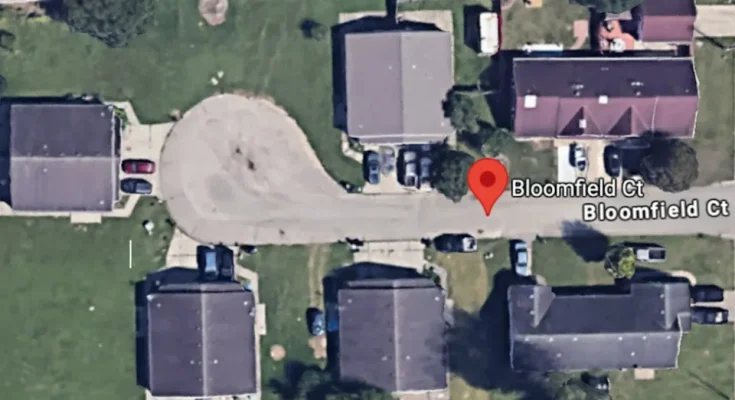For most people, buying property requires years of saving, careful planning, and a fair share of compromise. But for one Ohio man, what began as a straightforward effort to secure a plot of land for his dream home unexpectedly resulted in the purchase of an entire street.
In 2021, Jason Fauntleroy, a resident of Ohio, attended a Butler County Sheriff’s Office auction hoping to buy a small piece of land in Trenton, just north of Cincinnati. With a bid of $5,000, Fauntleroy believed he had secured a plot where he could one day build a house. Instead, he later discovered that his winning bid had also made him the owner of Bloomfield Court, a private road serving five occupied homes.
The unusual purchase left Fauntleroy not only with the land he had wanted, but also with the responsibility of maintaining a roadway that was essential to his new neighbors.
Speaking to WCPO, Trenton City Manager Marcos Nichols admitted he was uncertain how the situation had come about. “I’m not sure how that occurs other than it was a private drive that was created through a homeowner’s association,” Nichols explained. “The homeowner’s association was responsible for maintaining that property and upkeeping it.”
The mistake, however, meant that with the homeowners’ association no longer in control, responsibility fell squarely on Fauntleroy. While he had not purchased the five homes themselves, he had unknowingly acquired the street they all relied on to access their properties. Suddenly, a man who simply wanted to build a house found himself managing a private road for several other families.
Over the following years, the issue became increasingly complicated. Residents needed the street maintained, and Fauntleroy was legally bound to oversee it, even though the circumstances of the sale had been far from clear. The unusual case highlighted the complexities that can arise in property auctions, where fine print and legal technicalities can transform what looks like a bargain into a major burden.
By 2024, three years after the original auction, the city of Trenton decided to step in. Officials began the process of reclaiming the land through eminent domain, a legal mechanism that allows government bodies to acquire private property for public use, typically with compensation to the owner. The goal, according to city leaders, was to convert Bloomfield Court into a public roadway so the city itself would take over maintenance responsibilities.
But Fauntleroy argued that the compensation offered to him was inadequate. He claimed that officials had only appraised the original lot he had intended to buy, rather than the entire street that came with it.
In an interview, Fauntleroy described the situation as a personal and financial ordeal. “They shut me out. They blocked my calls. It’s hard to even get through anybody,” he said, referring to his attempts to negotiate with city representatives. “It’s been a nightmare.”
Nichols, when asked about the appraisal process, told WCPO he could “not speak to the appraised value” but reiterated that the city’s motivation was to make the street a public roadway, ensuring the residents who lived there had proper access and maintenance.
From Fauntleroy’s perspective, however, the city’s approach felt unfair. He argued that he had inadvertently acquired a much larger responsibility than he bargained for and should be compensated accordingly. “Treat people fair; do honest work,” he said. “Don’t just take advantage of someone because they don’t have the means of getting an attorney.”
The story has drawn attention both locally and nationally as an unusual example of how property law and municipal management can collide. It has also underscored the risks individuals face when entering property auctions without legal guidance, where unclear documentation or overlooked details can lead to unexpected outcomes.
While Fauntleroy’s case remains in dispute, it has raised broader questions for cities and counties across the country. How should municipalities handle privately owned roads tied to small homeowner associations? What safeguards should be in place to prevent individuals from unknowingly purchasing infrastructure with ongoing obligations? And what protections exist for buyers who find themselves trapped in legal gray areas?
For now, Fauntleroy continues to push for what he believes is fair treatment, while the city presses ahead with its plans to absorb Bloomfield Court into the public road network. For the residents living along the street, the hope is that the dispute will soon be resolved so that everyday concerns—like snow removal, potholes, and upkeep—no longer fall into a legal limbo.
As for Fauntleroy, what began as an attempt to create a home for himself has turned into a saga he never anticipated. His story serves as a cautionary tale for prospective buyers: sometimes the deal of a lifetime can carry far more than meets the eye.



